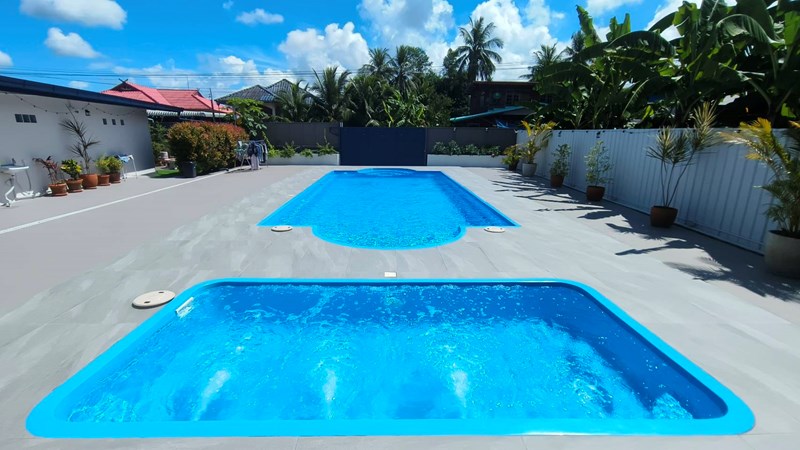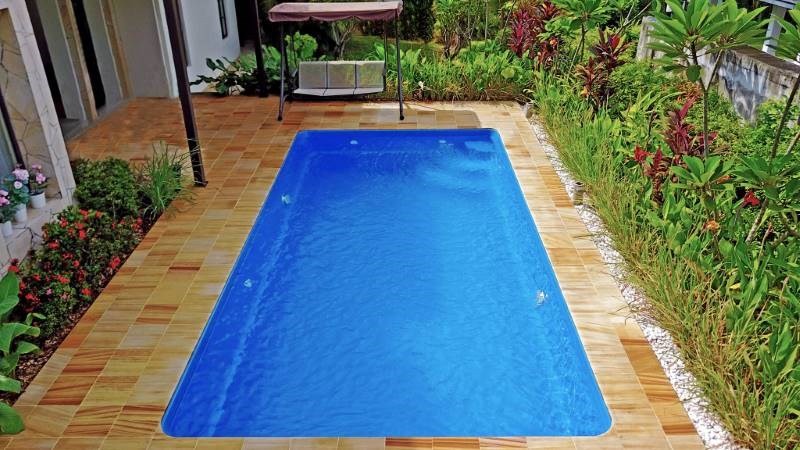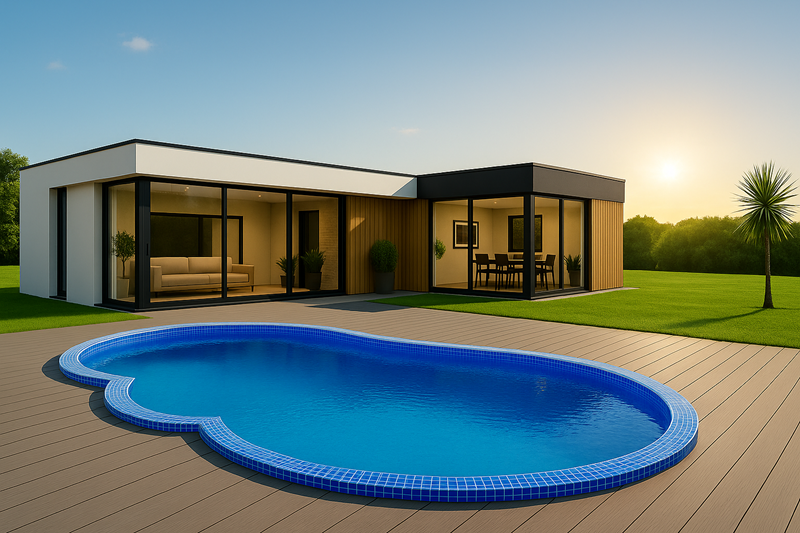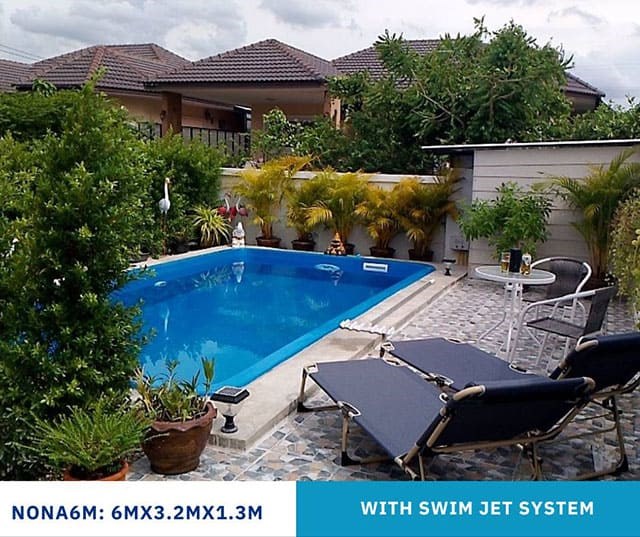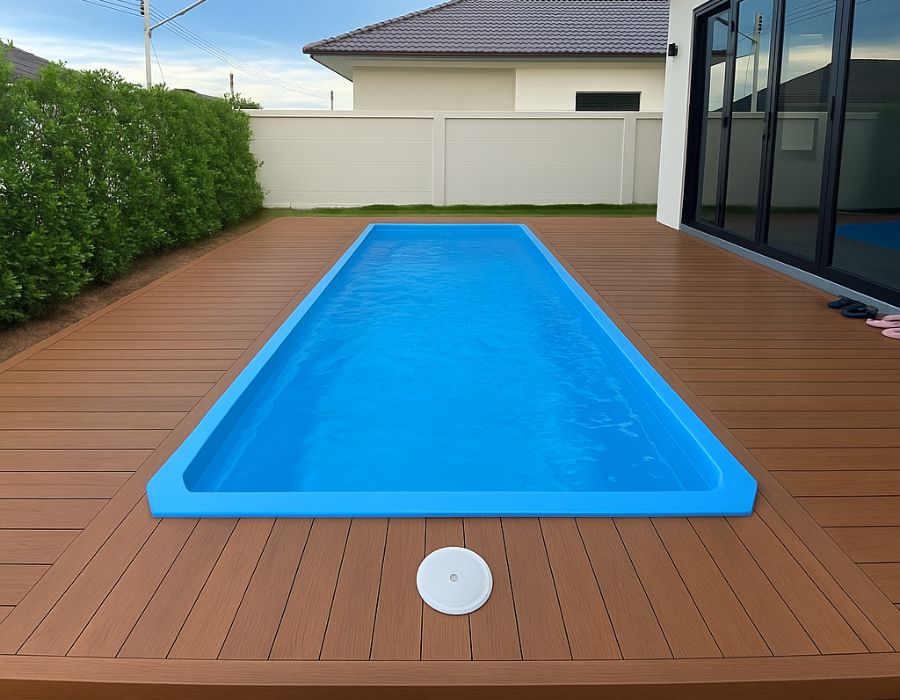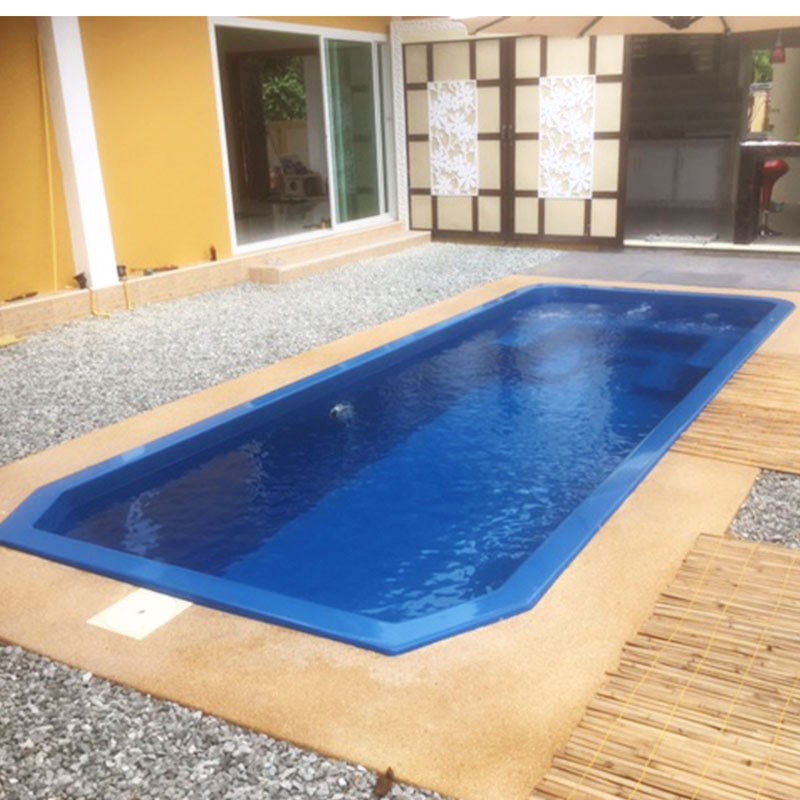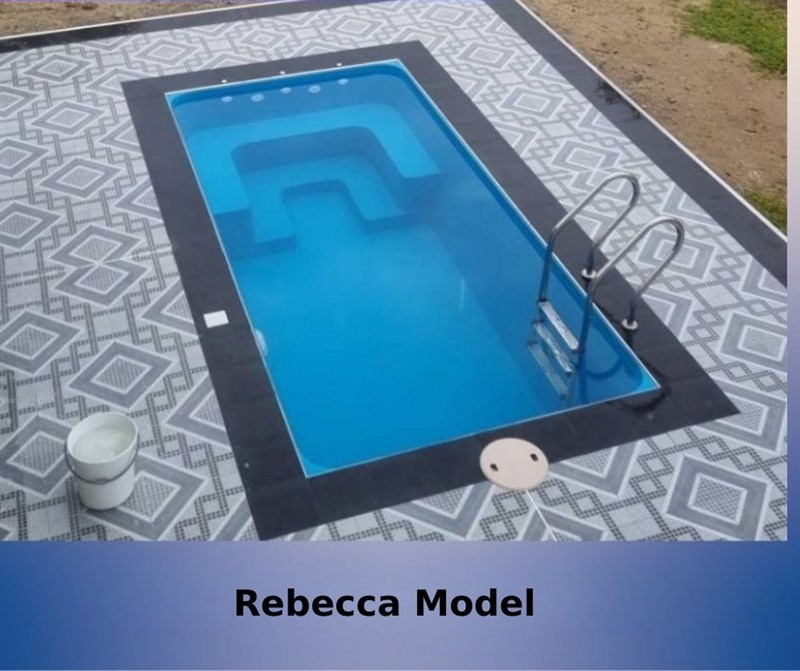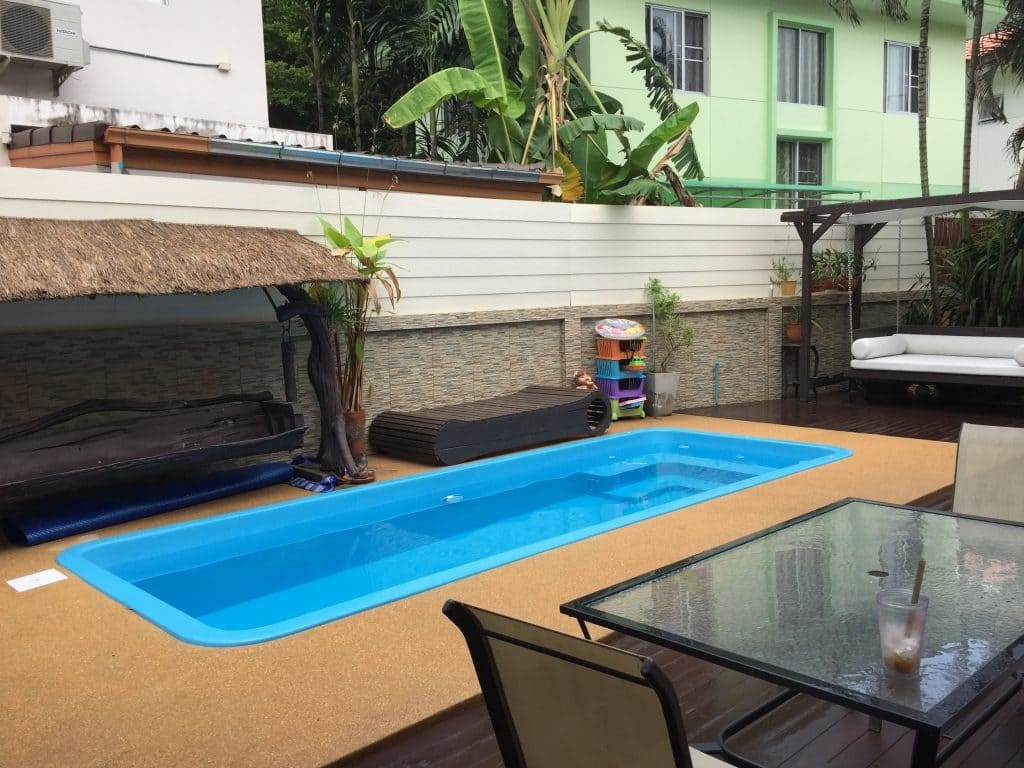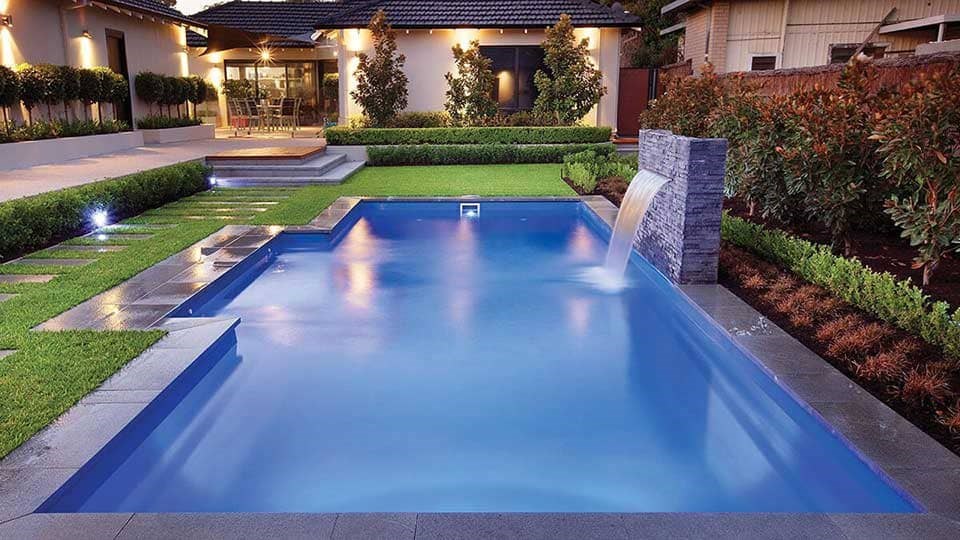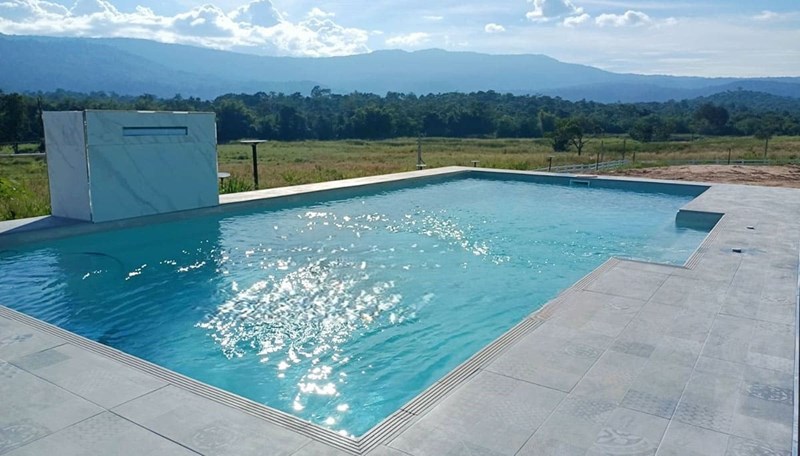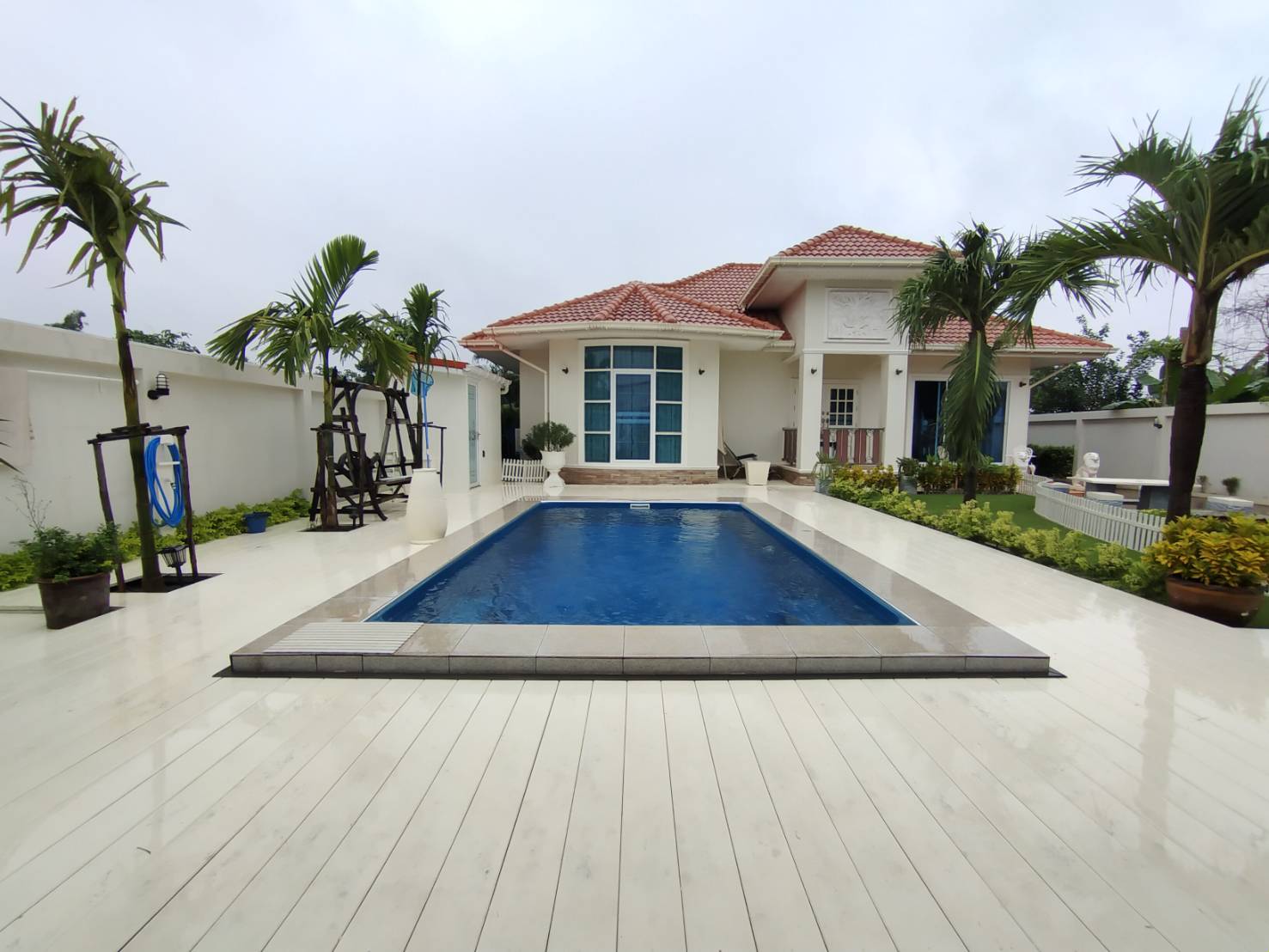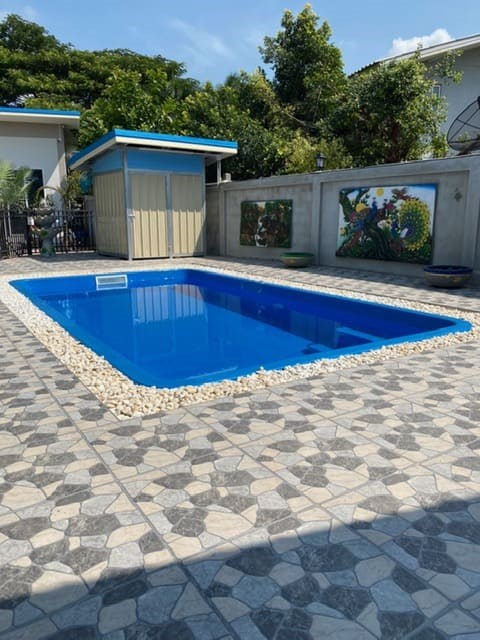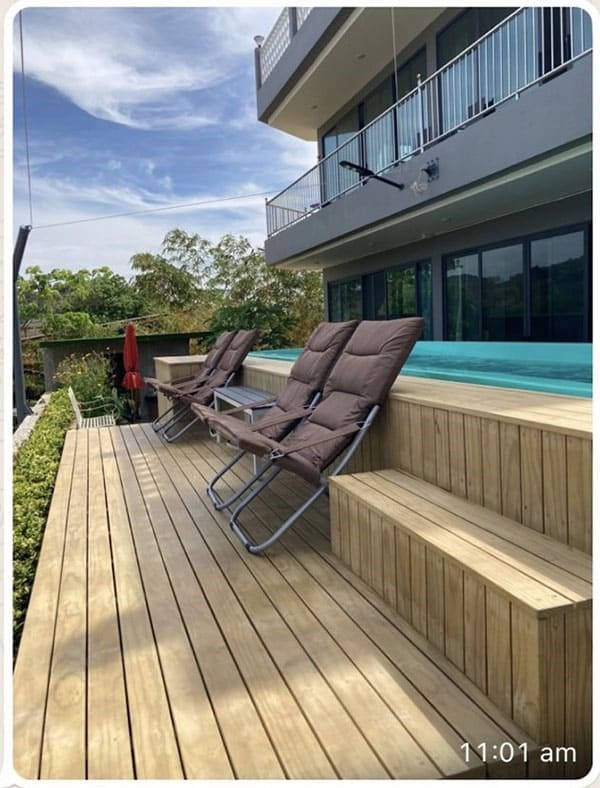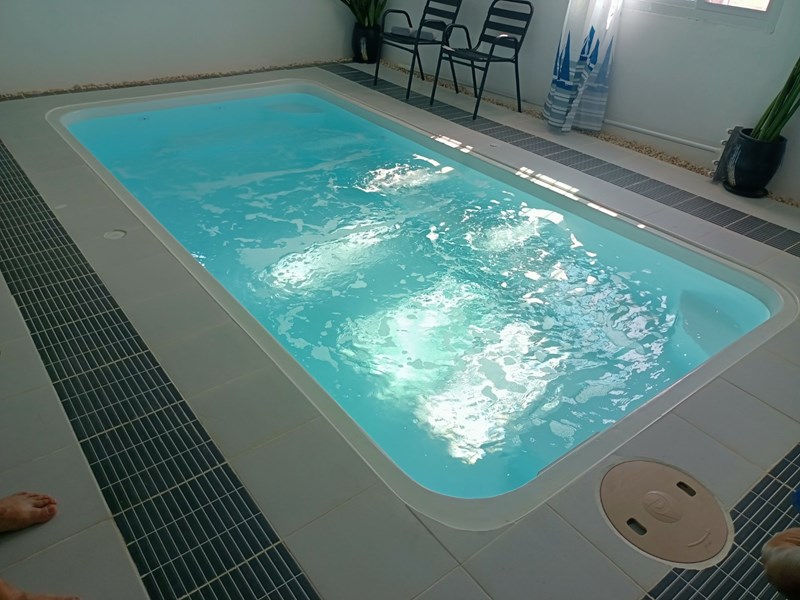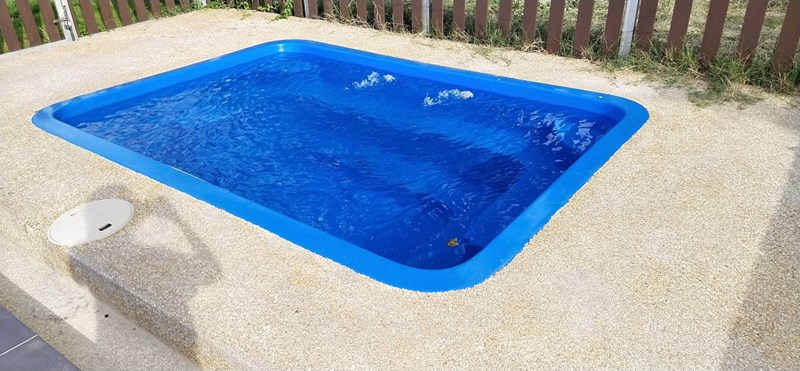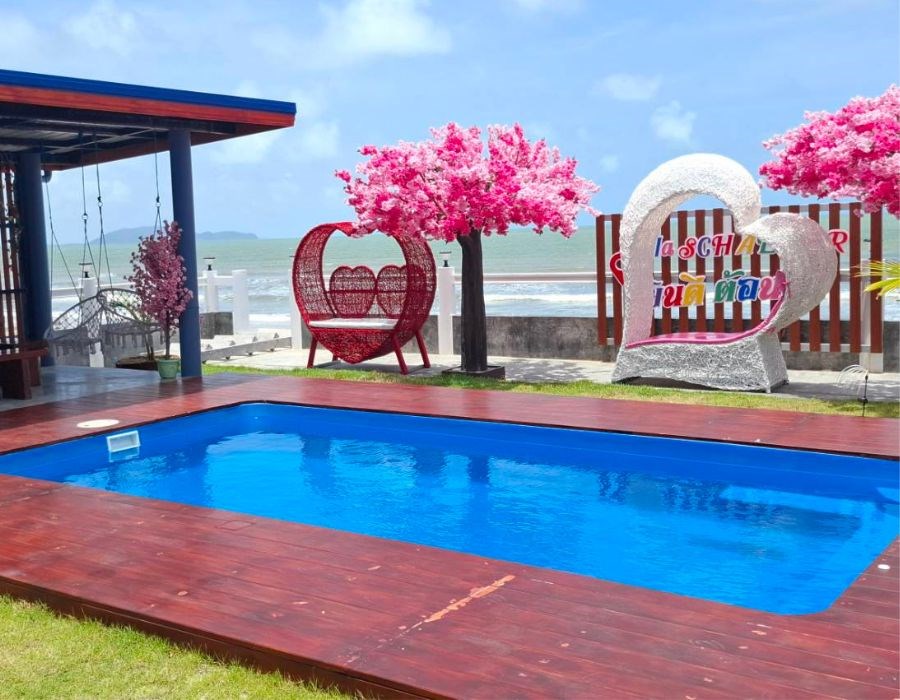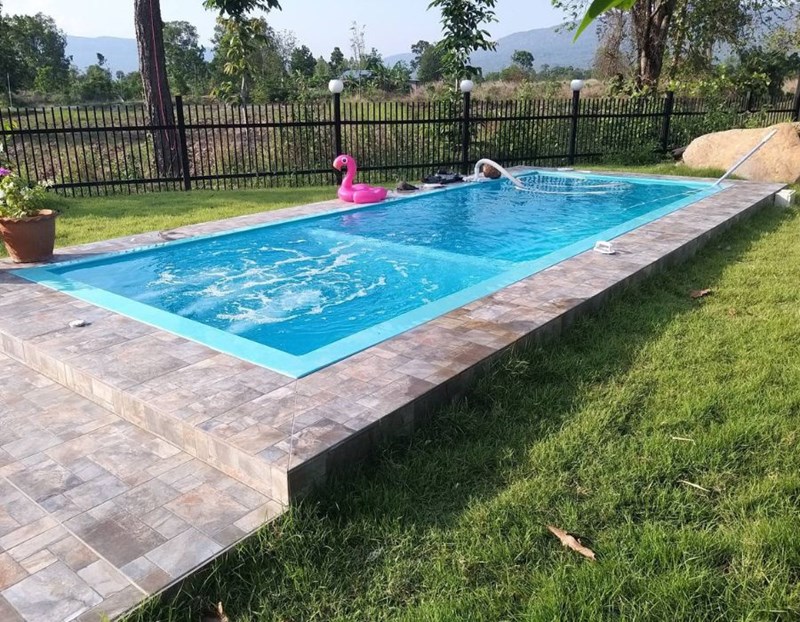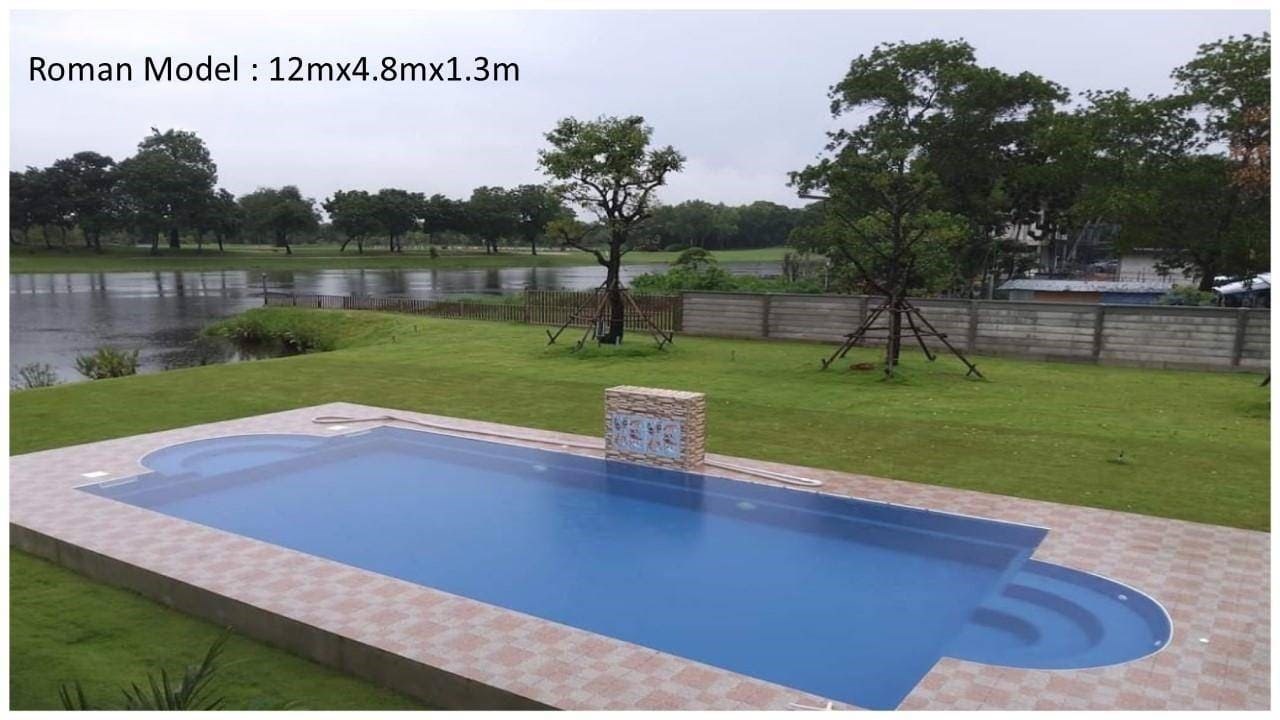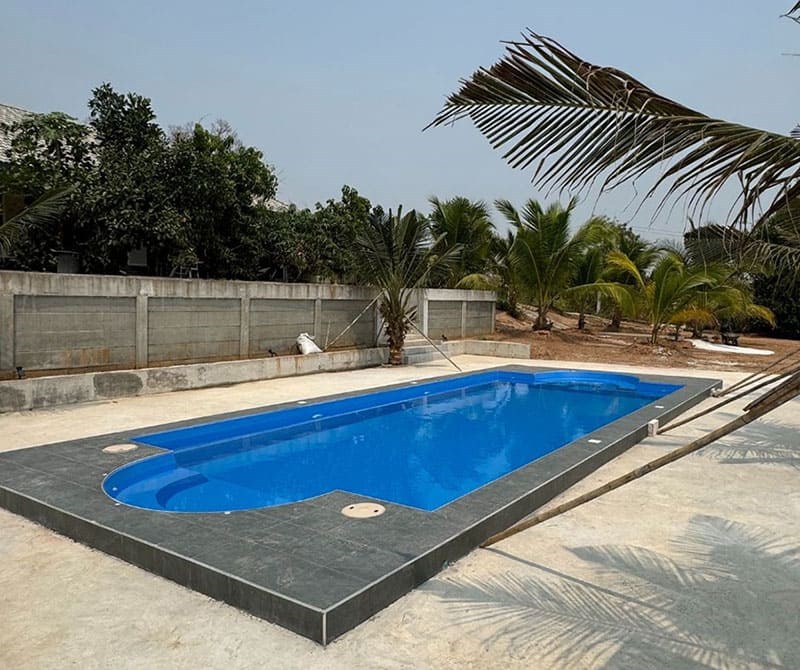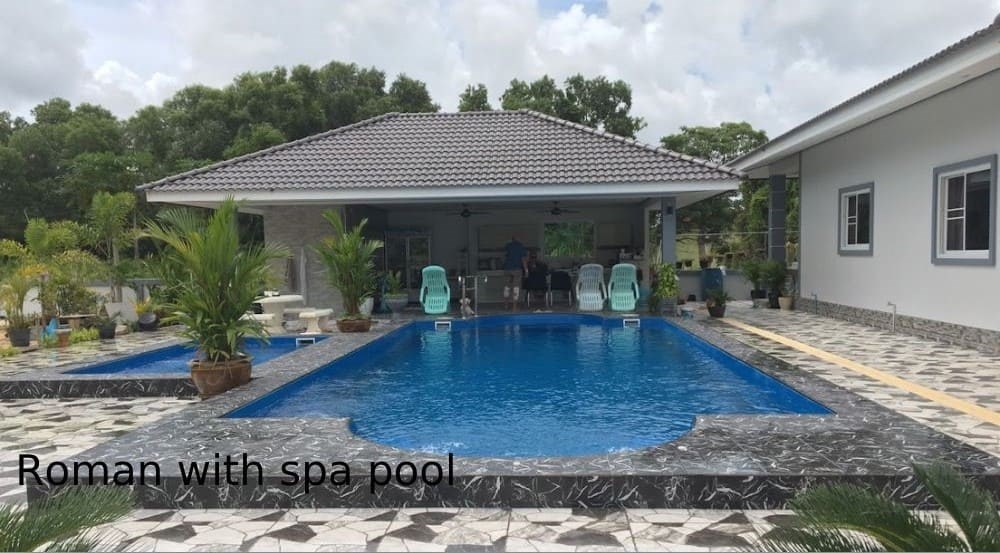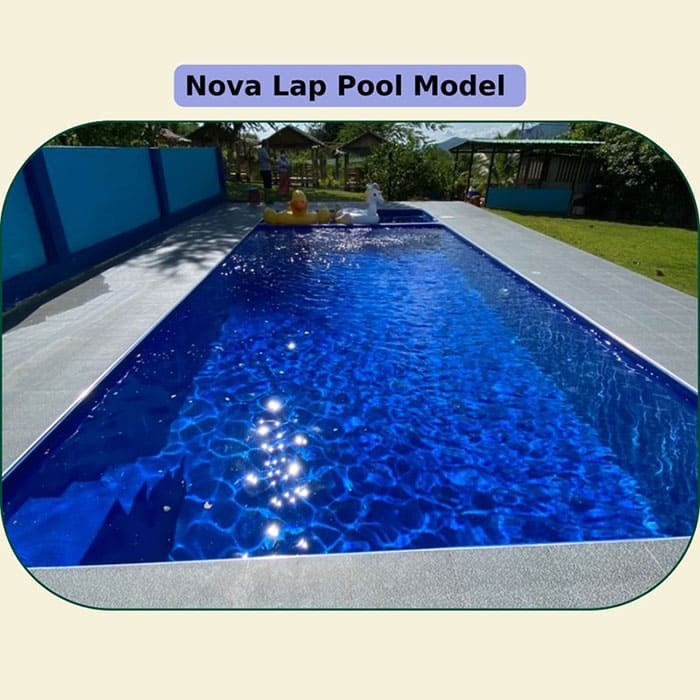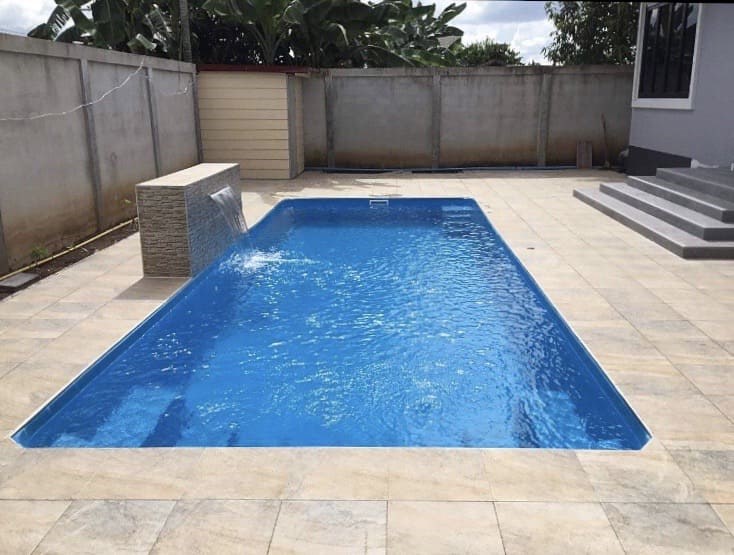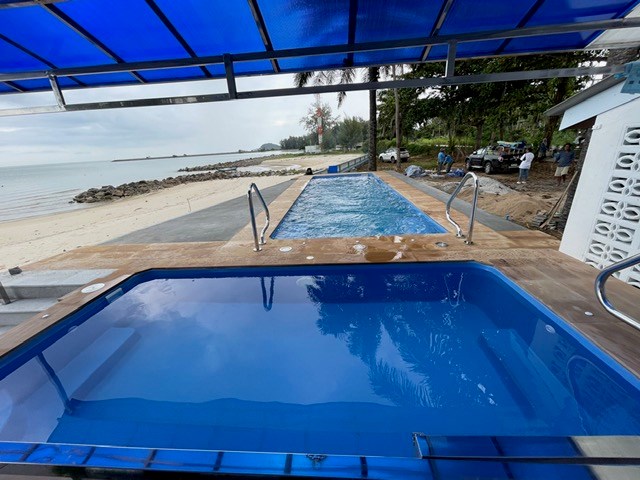What is a fiberglass swimming pool?
A fiberglass swimming pool is a type of swimming pool made from a single, pre-molded shell of fiberglass, reinforced with plastic resin. Unlike concrete or vinyl liner pools, which are constructed on-site, fiberglass pools are built in a factory and delivered to the installation site as one large, continuous piece. This allows for faster installation and fewer potential construction issues compared to other types of pools.
Key Features of Fiberglass Pools
Durability
Fiberglass is a strong and flexible material, making it resistant to cracks, leaks, and damage caused by shifting soil. This makes fiberglass pools long-lasting and low-maintenance.
Smooth Surface
The interior surface of fiberglass pools is smooth and non-porous, making it resistant to algae growth and easier to clean. The smooth finish also provides a comfortable swimming experience.
Quick Installation
Since fiberglass pools are pre-fabricated, they can typically be installed in just a few days to a couple of weeks, much faster than concrete pools, which can take months to complete.
Low Maintenance
Fiberglass pools require less chemical treatment than concrete pools because of their non-porous surface, which helps reduce algae buildup and chemical absorption. This leads to lower long-term maintenance costs.
Customizable Features
While the pool shell is pre-molded, fiberglass pools come in a variety of shapes, sizes, and designs. Additional features like built-in steps, benches, tanning ledges, and spas can often be incorporated.
Pros of Fiberglass Pools
1.Low Maintenance :
Requires fewer chemicals and less cleaning due to the smooth, non-porous surface.
2. Fast Installation :
Can be installed quickly since the pool is pre-made in a factory.
3. Durable:
Less prone to cracking compared to concrete pools and can handle soil shifts better.
4. Comfortable Surface :
The smooth surface is gentle on swimmers' skin.
Cons of Fiberglass Pools
1. Limited Customization in Shape:
Fiberglass pools come in pre-designed shapes, so while there are many options, they are less customizable than concrete pools, which can be shaped on-site.
2. Size Limitations:
Transporting the pre-made shell limits the size of fiberglass pools. They may not be as large as some custom-built concrete pools.
Installation Process
1.Excavation:
A hole is dug in the ground to match the shape and size of the pre-fabricated fiberglass pool.
2.Base Preparation:
A base layer (usually sand or gravel) is laid down for leveling and support.
3.Shell Placement:
The fiberglass shell is delivered to the site and carefully lowered into the prepared hole.
4.Leveling and Backfilling:
The pool is leveled, and the space around the shell is backfilled with materials like sand or gravel to secure it.
5.Plumbing and Equipment:
The filtration, heating, and lighting systems are installed and connected.
6.Finishing Touches:
The surrounding area is landscaped, and decking or other features are added.
Conclusion
Fiberglass swimming pools are a popular choice for homeowners who want a durable, low-maintenance, and quickly installed pool. They offer various designs, are resistant to many common pool problems (like algae growth and cracks), and provide a smooth and comfortable surface for swimming.
